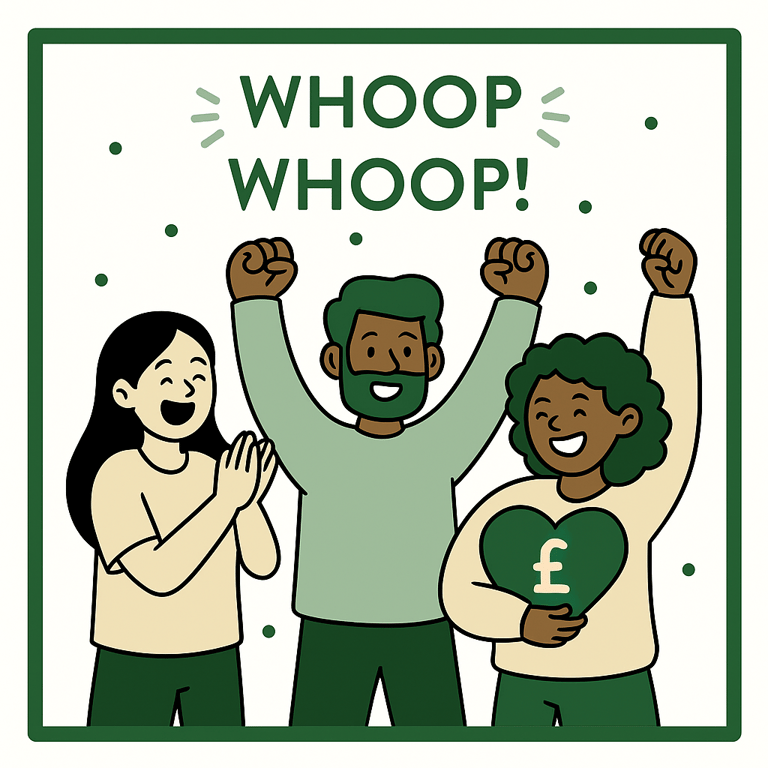Place-based approaches recognise that the most meaningful change is local, relational, and adaptive. They focus on solutions rooted in specific communities and geographies, shaped by those with lived experience and sustained through collaboration.
At PlaceBased Agile, we believe agile methods perfectly encapsulate this ethos. Agile values iteration, responsiveness, co-creation, and feedback — all core to place-based work.
But historically, agile has been applied in sectors like tech and finance — not in charities, public services, or community partnerships, where it’s arguably needed most.
PlaceBased Agile is changing that, bringing Scrum- and Kanban-based practices, grounded in certified training, into mission-led spaces where they already fit: a rhythm many teams know intuitively: listen, act, reflect, adapt.
“PlaceBased” Agile?
Vision
A world where place-based organisations can confidently respond to complexity and uncertainty through agile ways of working.
Mission
Placebased Agile equips mission-driven teams and place-based organisations with agile delivery tools, coaching, and frameworks—designed specifically to balance local context with responsive, iterative value creation.
Agile
vs.
Traditional
Project Management
Agile saves time, energy, and money — by helping you stop sooner, adapt faster, and focus better.
Traditional project management (called Waterfall) often locks charities and public bodies into detailed plans, long timelines, and fixed outputs, even when the landscape changes.
Agile works differently: it builds in feedback early, delivers value incrementally, and helps you adjust direction before resources are wasted.
🌍 Real-World Examples🌍
🤯 Traditional:
A charity spends £15,000 developing a community toolkit… only to find few people download or use it.
🔍 Agile Alternative:
Test the concept with one short guide and a simple feedback form. Use that insight to shape what’s next, or decide not to invest further.
🐢 Traditional:
A local authority commissions a multi-phase engagement strategy, delivered six months after the window for influence has passed.
🐇 Agile Alternative:
Run an agile “engagement sprint” with one pilot conversation, reflection workshop, and adaptive follow-up, in real time, with measurable impact.
😏 Traditional:
A charity builds an internal reporting system in one go hoping to save money and time, only to find the team won’t use it once complete.
🧭 Agile Alternative:
Map the pain points, test one or two changes in a sprint, and build habits before you build platforms.
How Agile Saves Your Mission Critical Org Resources + Time
A simple rhythm that avoids unnecessary spend:
🔍 Fewer Assumptions
→ You test early instead of over-planning.
📣 Earlier Feedback
→ You hear what’s working (or not) before it scales.
🔁 Less Waste
→ You adjust before you invest, and build what’s actually needed.


Why This Matters
Agile allows charities and community organisations to use their energy in a way that respects their own capacity, timing, and values. It doesn’t ask teams to do more, it helps them do the right things sooner.
It also means you can:
Report on wins earlier
Adjust faster when the context shifts
Show progress to stakeholders or funders in smaller, meaningful increments
This is especially important in public sector and partnership work, where timelines move, needs evolve, and showing momentum matters.
Agile is about being accountable without being overloaded, and making progress in rhythm with the people and places you serve.
About Me
I’m a charity marketing, communications and project delivery specialist with an MSc in Charity Marketing and Fundraising from Bayes Business School's Centre for Charity Effectiveness.
I’ve worked across membership bodies, environmental nonprofits, and faith-led organisations to strengthen stakeholder engagement, digital infrastructure, and strategic messaging.
Whether rolling out CRM systems, delivering SEO campaigns, or coordinating governance and compliance, I help purpose-driven teams align their communications with impact.
Certified in PRINCE2 (Practitioner) and Agile (Professional Scrum Master (PSM) I (Scrum.org); Scrum Kanban Practitioner (SKP) and Kanban Management Professional (KMP) (Kanban University), I apply structured delivery and Scrum-based approaches with a clear understanding of where conventional project management (Waterfall) often falls short—particularly in supporting community-led fundraising, service improvement, and organisational growth beyond reliance on grants.


David Wallace-Hare
Community Agile Consultant
Empowering Local Charities & Community Organisations to Grow and Transform with Agile
Contacts
By email: sprint@placebasedagile.co.uk
By phone: 073499626390
© 2025. All rights reserved.


PlaceBased Agile is operated by David Wallace-Hare, a sole trader based in the UK. Registered business address: Suite A, 82 James Carter Road, Mildenhall, IP28 7DE
